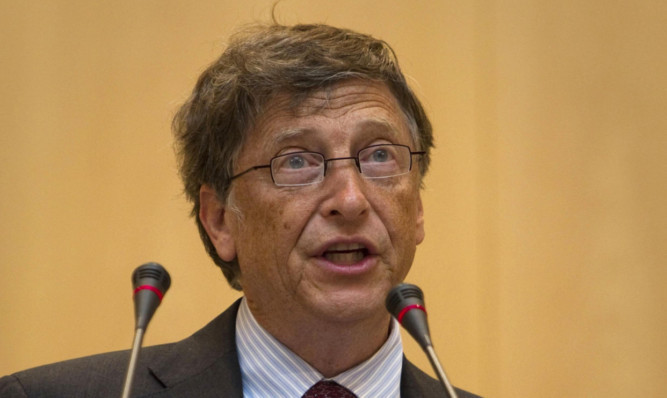Bill Gates one of the world’s richest men is helping to pay for a new centre at Dundee University to tackle the scourge of tuberculosis and other deadly diseases.
A foundation set up by the billionaire Microsoft founder and his wife Melinda has joined forces with one of the UK’s leading research funders, the Wellcome Trust.
Together they will invest £6.5 million over five years to help scientists try to find medicines for some of the biggest killers in the developing world, including TB, malaria and African sleeping sickness.
There is an urgent need for new drugs to treat infectious diseases. Despite significant efforts in early stage drug discovery, there is a bottleneck when it comes to the next stage of the process.
This is called lead optimisation and involves potential drugs going through cycles of design, synthesis and testing to identify which ones are suitable for trials in a clinical setting.
It is a labour-intensive process that requires years of laboratory work.
With the new funding, Professor Paul Wyatt and colleagues at the university’s drug discovery unit are establishing a centre of excellence for lead optimisation. It will create 11 posts.
Professor Wyatt said: “One of the main aims of the drug discovery unit is to make inroads into developing drugs for diseases that affected the developing world.
“We have the capability through the DDU to help break the bottleneck which occurs at a key stage of the drug discovery process.”
The initial focus will be on tuberculosis, which is the world’s second-leading infectious killer and disproportionately affects developing countries.
In 2010 the disease is reckoned to have killed 1.4 million people and infected another 8.8 million. Worryingly, there were an estimated 450,000 cases where the disease proved resistant to drugs.
Therapies for tuberculosis are old and inadequate, taking six months to cure patients. The long treatment regimen means many patients do not complete it and that can lead to increased transmission of the disease and greater resistance to drugs.
The drug discovery unit already has links with the global HIT-TB consortium and the TB drug accelerator programme, which are using screening programmes to identify potential drugs.
Professor Wyatt and his team will be trying to build up a portfolio of compounds that can go through the lead optimisation process.
Dr Richard Seabrook, head of business development at the Wellcome Trust, said: “We are pleased to be co-funding with the Bill & Melinda Gates Foundation on this exciting UK project.
“It will bring together internationally renowned experts in the biology of infectious diseases with a first-class drug discovery unit to tackle some of the world’s most profound medical needs.”
Since Bill and Melinda Gates set up their foundation in the 1990s, it has spent more than $25 billion supporting aid, health and education projects in more than 100 countries.
